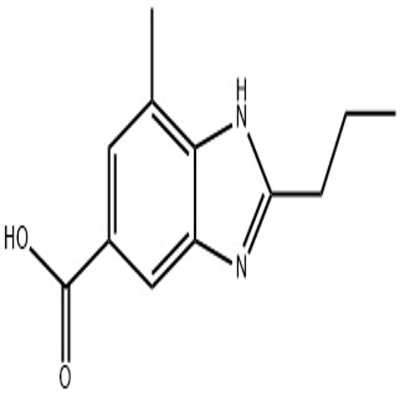-
Categories
-
Pharmaceutical Intermediates
-
Active Pharmaceutical Ingredients
-
Food Additives
- Industrial Coatings
- Agrochemicals
- Dyes and Pigments
- Surfactant
- Flavors and Fragrances
- Chemical Reagents
- Catalyst and Auxiliary
- Natural Products
- Inorganic Chemistry
-
Organic Chemistry
-
Biochemical Engineering
- Analytical Chemistry
-
Cosmetic Ingredient
- Water Treatment Chemical
-
Pharmaceutical Intermediates
Promotion
ECHEMI Mall
Wholesale
Weekly Price
Exhibition
News
-
Trade Service
6-Chloro-2-pyrazinecarbonitrile, also known as CPC, is a widely used intermediate in the chemical industry.
It is commonly used as a catalyst in the production of polyurethanes, polyureas, and other synthetic materials.
In this article, we will explore the instruction of 6-chloro-2-pyrazinecarbonitrile in the chemical industry.
- Preparation of CPC
6-chloro-2-pyrazinecarbonitrile can be prepared by several methods.
The most common method is the reaction of 2-chloropyrazine with carbon nitride in the presence of a solvent such as acetonitrile or dichloromethane.
Another method is the reaction of 2-chloropyrazine with calcium cyanide in the presence of a solvent such as acetonitrile or tetrahydrofuran. - Uses of CPC
CPC is widely used as a catalyst in the production of polyurethanes and polyureas.
It is also used in the production of other synthetic materials such as polyurea-urethane hybrids, polyesteramides, and polycarbonates.
CPC is also used as a curing agent for epoxy resins and as an accelerator for the curing of unsaturated polyester resins. - Importance of CPC
CPC is an important intermediate in the production of various synthetic materials.
It is widely used as a catalyst in the production of polyurethanes and polyureas, which are used in a variety of applications such as in the manufacturing of flexible and rigid foams, coatings, adhesives, and sealants.
The importance of CPC in the chemical industry can be gauged by its widespread use as a catalyst in the production of various synthetic materials. - Production of Polyurethanes and Polyureas
CPC is used as a catalyst in the production of polyurethanes and polyureas.
The production of these materials involves the reaction of a polyisocyanate with a polyol in the presence of CPC.
The presence of CPC catalyzes the reaction and results in the formation of the desired polymer.
The properties of the polymer can be tailored by adjusting the ratio of the reactants and by adding various additives. - Production of Other Synthetic Materials
CPC is also used as a catalyst in the production of other synthetic materials such as polyurea-urethane hybrids, polyesteramides, and polycarbonates.
These materials are used in a variety of applications such as in the manufacturing of textiles, coatings, adhesives, and sealants. - Conclusion
6-chloro-2-pyrazinecarbonitrile is an important intermediate in the chemical industry.
It is widely used as a catalyst in the production of polyurethanes, polyureas, and other synthetic materials.
The production of these materials involves the reaction of a polyisocyanate with a polyol in the presence of CPC.
CPC is also used as a curing agent for epoxy resins and as an accelerator for the curing of unsaturated polyester resins.
The importance of CPC in the chemical industry can be gauged by its widespread use as a catalyst in the production of various synthetic materials.
The article concludes that CPC plays a vital role in the production of these materials and is an essential intermediate in the chemical industry.





![benzyl N-{2-[4-(4,4,5,5-tetramethyl-1,3,2-dioxaborolan-2-yl)phenyl]ethyl}carbamate](https://file.echemi.com/fileManage/upload/goodpicture/20210823/m20210823171124543.jpg)

